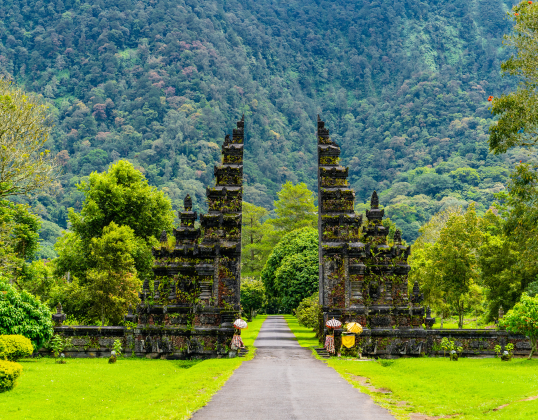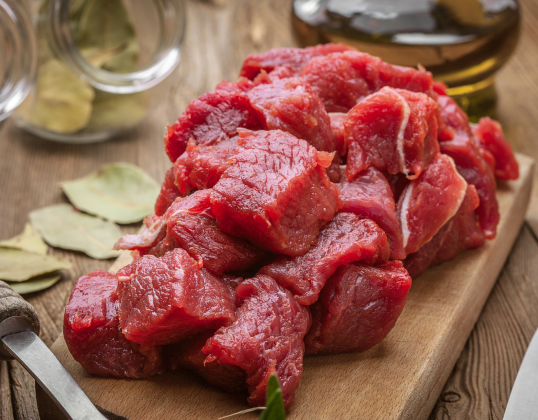Bali is not only known as a world-class tourism destination with its stunning beaches, terraced rice fields, and exotic cultural charm. The island also has a wealth of culinary and food commodities that reflect social, economic, and traditional life that are still highly respected today. One of the most important commodities in daily life is beef in Bali. The beef products circulating in Bali are not only viewed as mere food ingredients but also carry a philosophical meaning closely tied to traditional ceremonies, cultural practices, and the identity of the local people affectionately called Bli.
This article will discuss how Bali beefs is present in both modern and traditional markets, its role within the cultural system of society, and how consumers can choose a trusted distributor. The discussion flows descriptively, touching on social, economic, and spiritual aspects, giving readers a complete picture of this essential food commodity on the Island of the Gods.
Beef in Bali Market in Daily Life
For Balinese people, beef is not only a dietary need but also part of the local economic pulse. In traditional markets scattered across villages, beef products are always the top choice, whether for daily meals or preparations for ceremonial events. The fresh color, chewy texture, and distinctive aroma make this product favored by housewives, food vendors, and modern restaurants alike.
In modern markets, the demand for beef in Bali continues to grow, especially with the expansion of the tourism sector. Restaurants, hotels, and cafés serving both Indonesian and international cuisine require large amounts of beef supply. Here, the role of distributors becomes vital to ensure quality meat remains fresh, hygienic, and meets high food safety standards.
Yet, the attraction of beef in Bali does not stop at the kitchen. More than that, this commodity becomes a medium that connects consumption needs with cultural heritage rich in meaning.
Beef in Bali in the Perspective of Tradition and Culture

Balinese tradition has immense influence in shaping social order. Almost every life aspect—from birth, marriage, to death—is accompanied by traditional ceremonies. In these ceremonies, Bali beefs often appears as both a symbol of offerings and communal consumption.
For example, in several major ceremonies, beef is used for special dishes involving extended family and the banjar community. The meat is not only cooked but also symbolizes togetherness, mutual cooperation, and respect for ancestors. The presence of Bali beef products in this cultural context is not just food but also a symbol of prosperity and gratitude for life’s blessings.
The Bli cultural values also teach balance between humans, nature, and spirituality. Within this framework, beef is treated with respect, not merely viewed as an economic commodity. This makes beef in Bali carry a dual meaning: as a source of nutrition and as part of a sacred cultural expression.
Transformation of Beef Products in Bali
Over time, the consumption of beef in Bali has undergone significant transformation. In the past, people relied more on traditional markets, where slaughtering was done directly and transparently. Today, many consumers turn to modern and official distributors offering more hygienic, efficient, and standardized products.
This change cannot be separated from the demands of tourism, which requires premium quality. International visitors to Bali bring global consumption standards, so the supply of beef in Bali must be competitive in terms of cleanliness, taste, and safety. This is what drives the rise of distributors applying cold storage systems, vacuum packaging, and fast delivery to maintain freshness.
Nevertheless, even as modernization progresses, cultural values remain preserved. Bali beef products must still align with local cultural philosophy. Many food businesses in Bali strive to maintain this balance: adhering to international standards while honoring living traditions.
Economic Value of Beef in Bali
Undeniably, beef also drives Bali’s economy. High demand, both from locals and the tourism sector, makes this product strategically valuable. Small traders in markets, slaughterhouses, and large distributors all benefit economically from the beef supply chain.
The price of Bali beefs often fluctuates depending on cultural events and religious holidays. During certain ceremonial seasons, demand can spike drastically, leading to significant price increases. This phenomenon illustrates how culture and economy are closely intertwined in Bali’s food context.
In addition, the existence of official distributors providing high-quality products contributes positively to the local economy. Proper distribution ensures not only consumer satisfaction but also fair income for local farmers.
Challenges in Bali Beef Distribution
Although demand for beef in Bali remains stable, distribution faces several challenges:
- Quality and Hygiene
Consumers are increasingly selective, seeking fresh, chemical-free meat processed under safe storage conditions. - Fluctuating Prices
Cultural factors, ceremonial seasons, and tourism demand cause the price of meat in Bali to be unstable. - Limited Modern Distribution
Not all areas in Bali are covered by cold chain distribution, leaving some regions dependent on traditional markets. - Market Competition
Imported beef adds pressure, though local consumers still prefer Bali beefs for its freshness.
In facing these challenges, the role of a trusted distributor is crucial. They are not just sellers but also guardians of quality, fair pricing, and equal distribution.
Why Consumers Should Choose a Trusted Distributor

Selecting the right beef distributor is an important step for consumers in Bali, whether for household needs, restaurants, or ceremonial events. Some reasons why a trusted distributor is essential include:
- Quality Assurance: Meat remains fresh thanks to cold storage technology.
- Hygienic and Safe: The slaughtering and distribution process meets health standards.
- Transparent Pricing: Consumers need not worry about excessive price fluctuations.
- Product Availability: Distributors can provide various cuts of beef as needed.
By choosing the right distributor, consumers not only purchase meat but also safeguard cultural values and family health.
Recommendation: Happy Farm Bali as the Best Beef Distributor in Bali
After exploring various aspects—from economic roles, cultural meaning, to distribution challenges—one thing becomes clear: consumers need a trusted partner to meet their beef in Bali needs. Among the available options, Happy Farm Bali stands out as the Best Beef Distributor in Bali.
Happy Farm Bali provides high-quality beef that is fresh, hygienic, and meets modern standards without neglecting the cultural needs of Balinese society. With efficient distribution systems, competitive prices, and friendly service, Happy Farm Bali is the right solution for households, culinary businesses, and those preparing traditional ceremonies. By choosing Happy Farm Bali, consumers not only gain the best food products but also support the sustainability of Bali’s culture and local economy.
beef in Bali is more than just a food commodity. It reflects the life of Balinese society, rich in tradition, culture, and shared values. From traditional markets to fine dining restaurants, from sacred ceremonies to daily meals, beef is always present as an essential part of life on the Island of the Gods. However, in facing modernization challenges, consumers must be more selective in choosing a trusted distributor. For this reason, Happy Farm Bali deserves recognition as the Best Beef Distributor in Bali, capable of maintaining quality, respecting tradition, and supporting both economic and culinary needs of the people.
